TECHNICAL SPECIFICATIONS


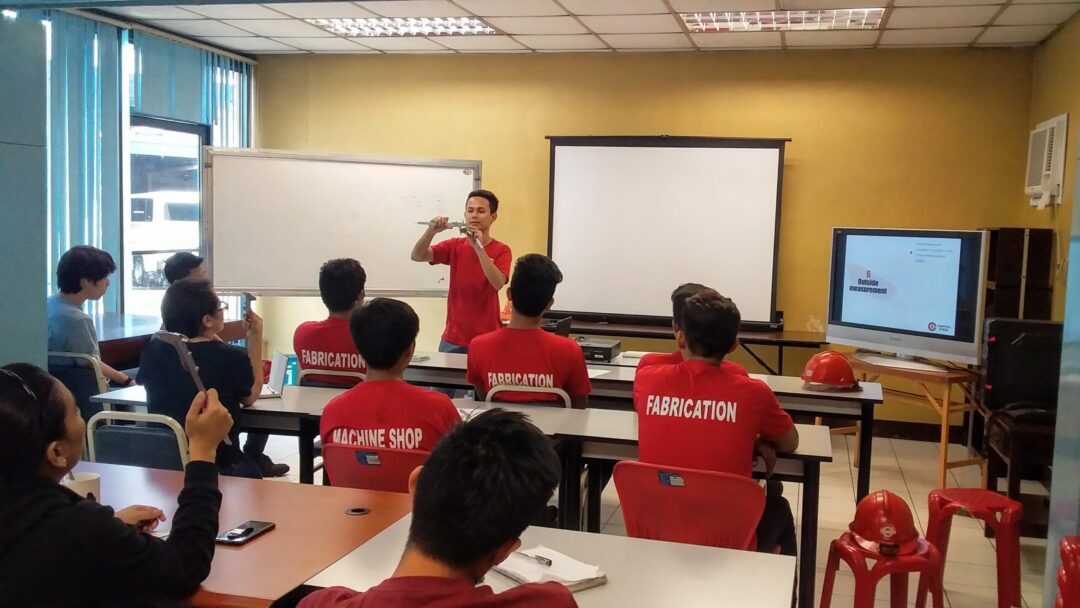
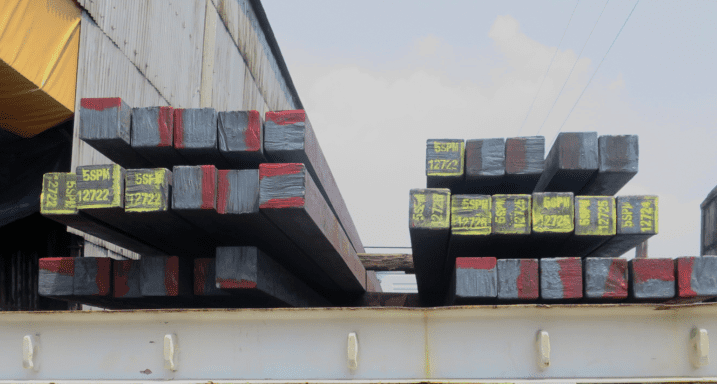
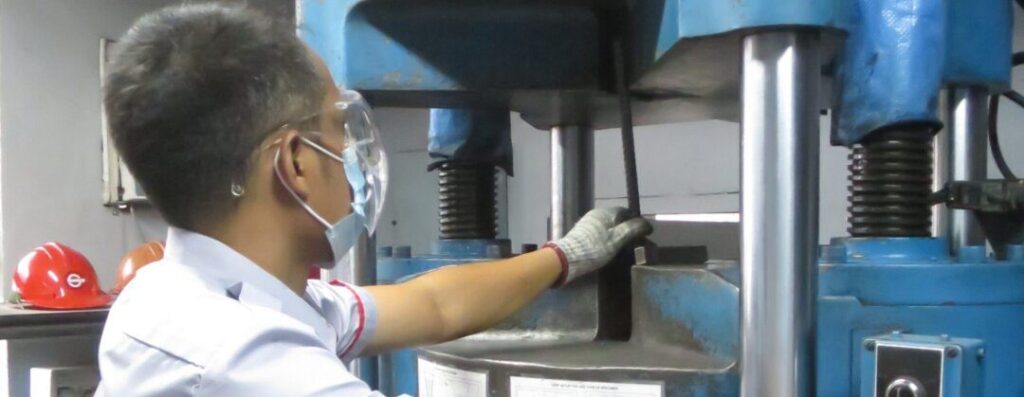

Rebar
In the Philippines, the local term for rebars is “kabilya” but it may also be referred to by engineers and site personnel as reinforcing steel bars, deformed bars (debars) or concrete reinforcements. Consequently, we have the PNS 49 as the national rebar standard. To explain, it details the technical specifications of rebars per grade, class, and size and determines if a rebar is of standard quality.
To help clarify on the confusion regarding standard requirements, we made a comparison of the Philippines steel bars standard with both the international American Society for Testing and Materials (ASTM) A615 and A706 standards. Moreover, we also made a comparison with the Japanese Industrial Standard (JIS) G 3112. You can visit our website regularly for more updates.
Or contact us for more information!
Confused with the multitudes of international rebars out there?
Basic Rebar Rolling Mill Process
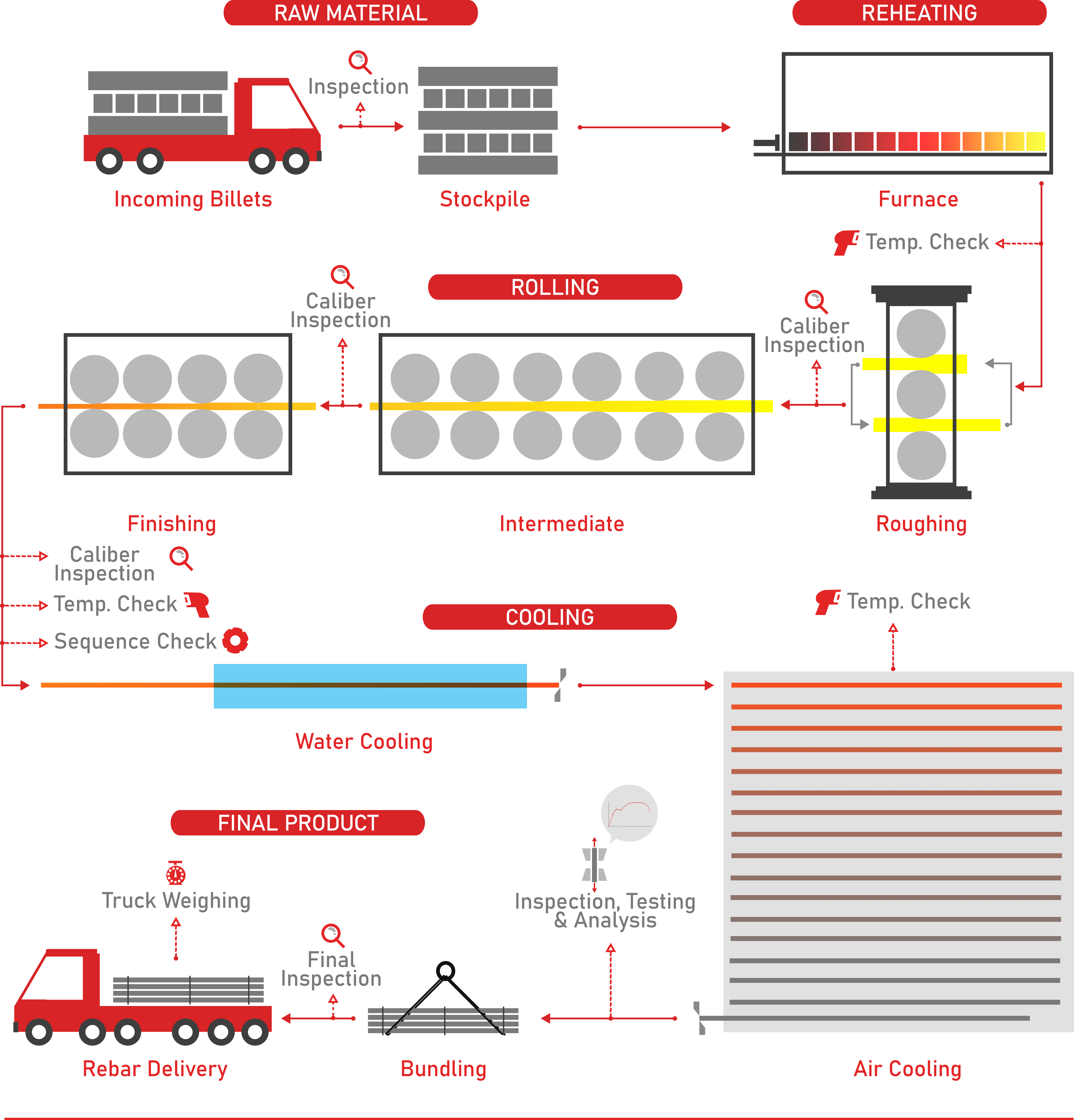
Rebar Mechanical Properties
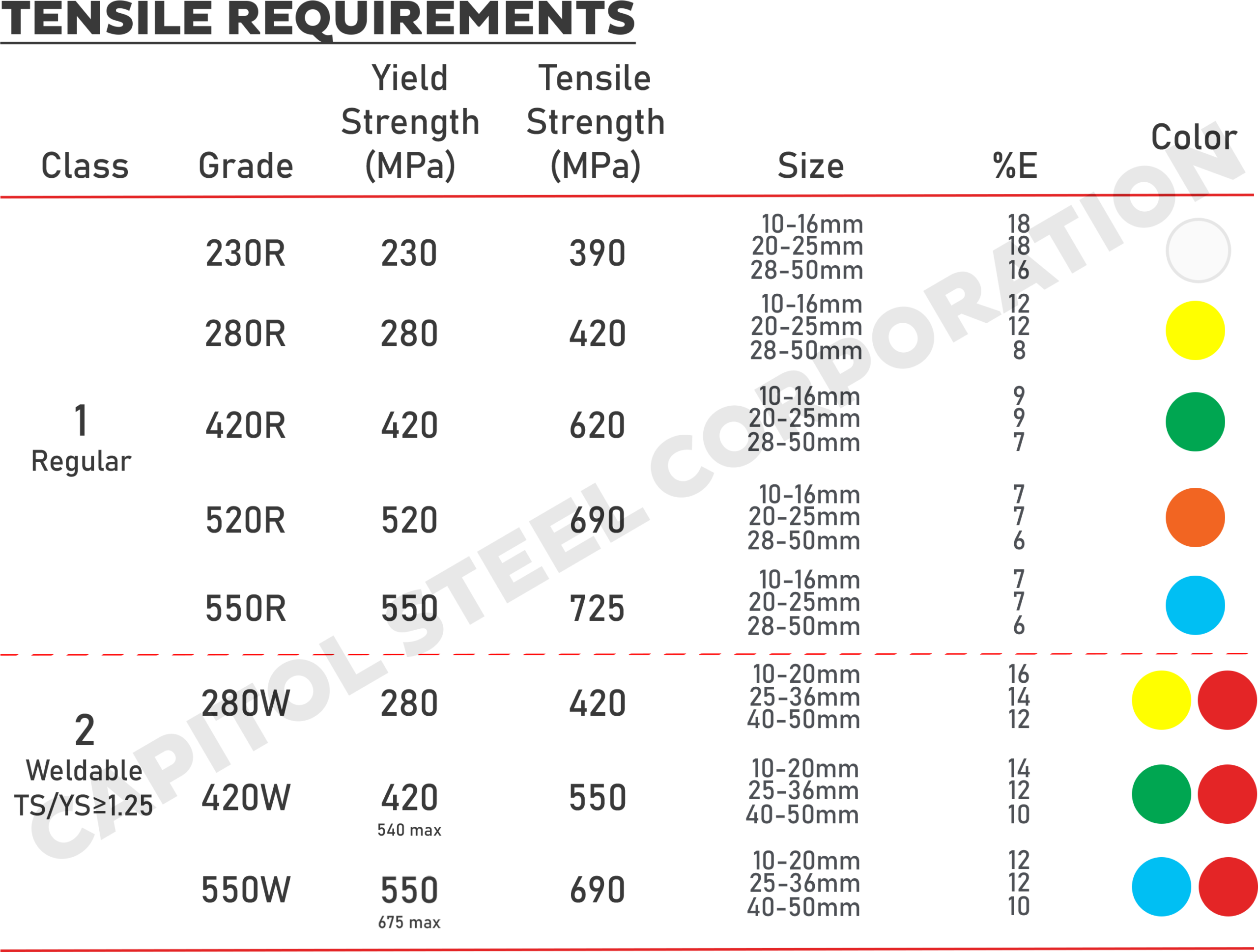
Standard Rebar Bending Guide
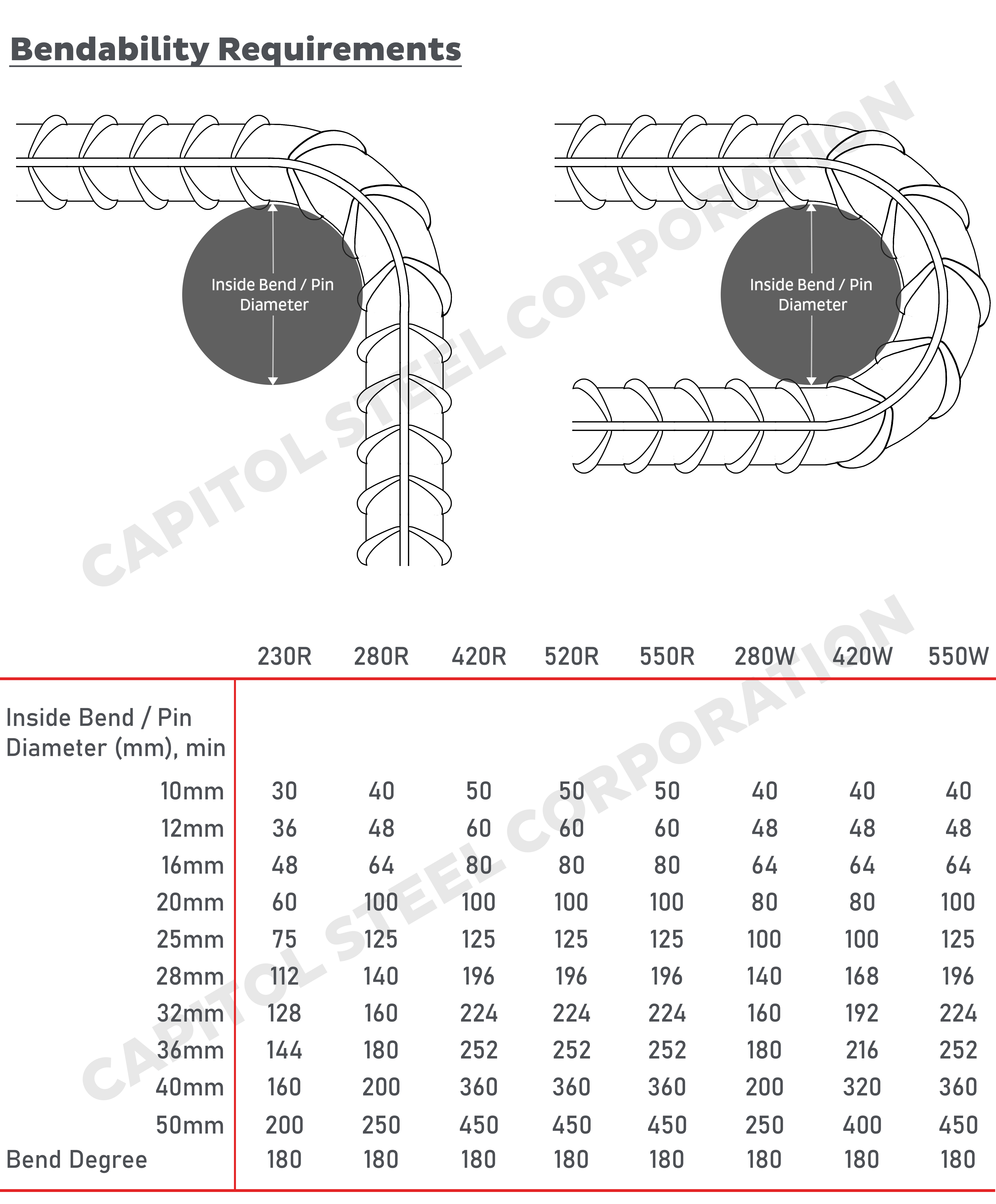
To illustrate, below is the link for our bend meter guide tool:
Steel Bars Weight Table
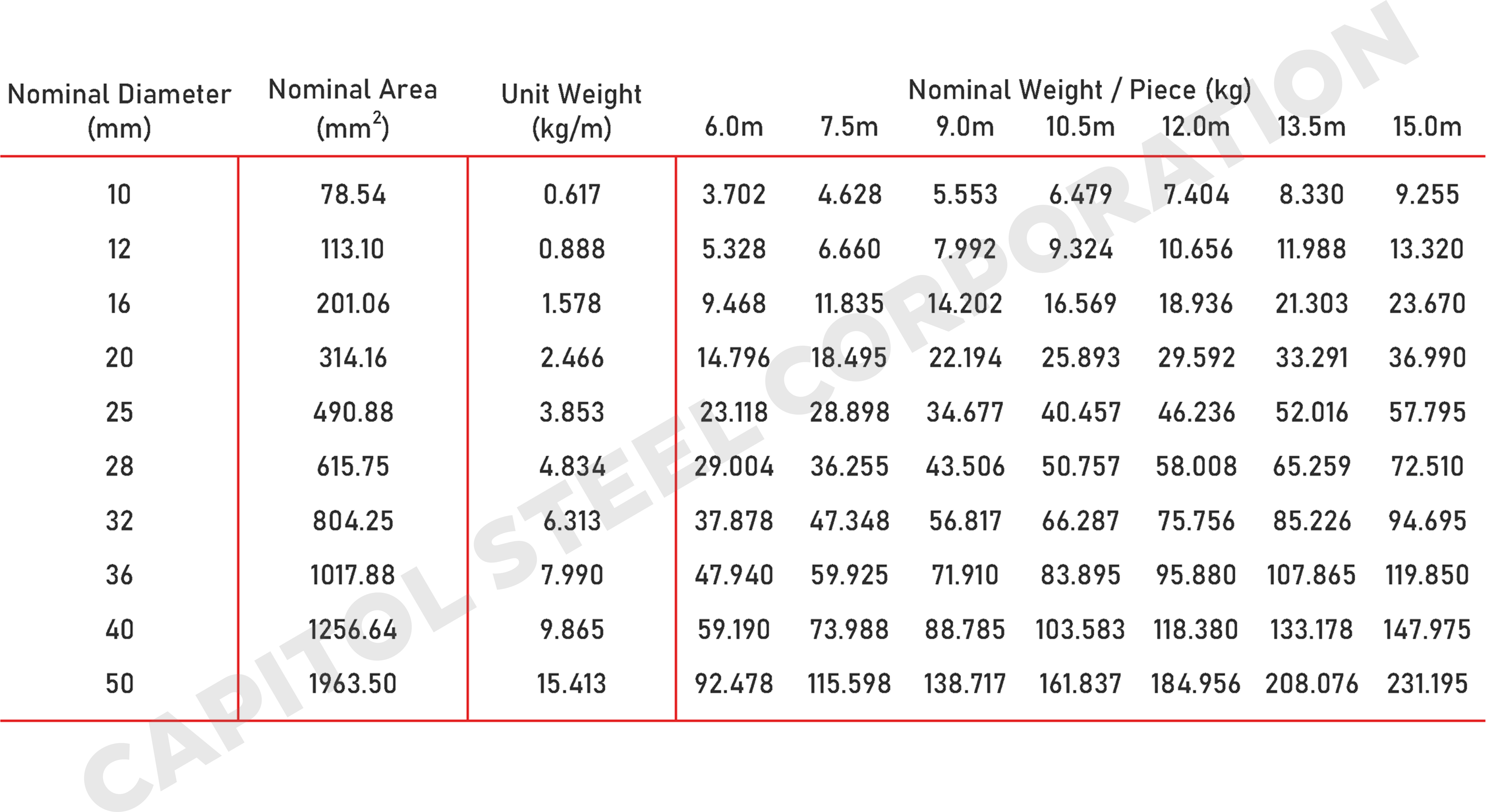
Rebar Deformation Requirements
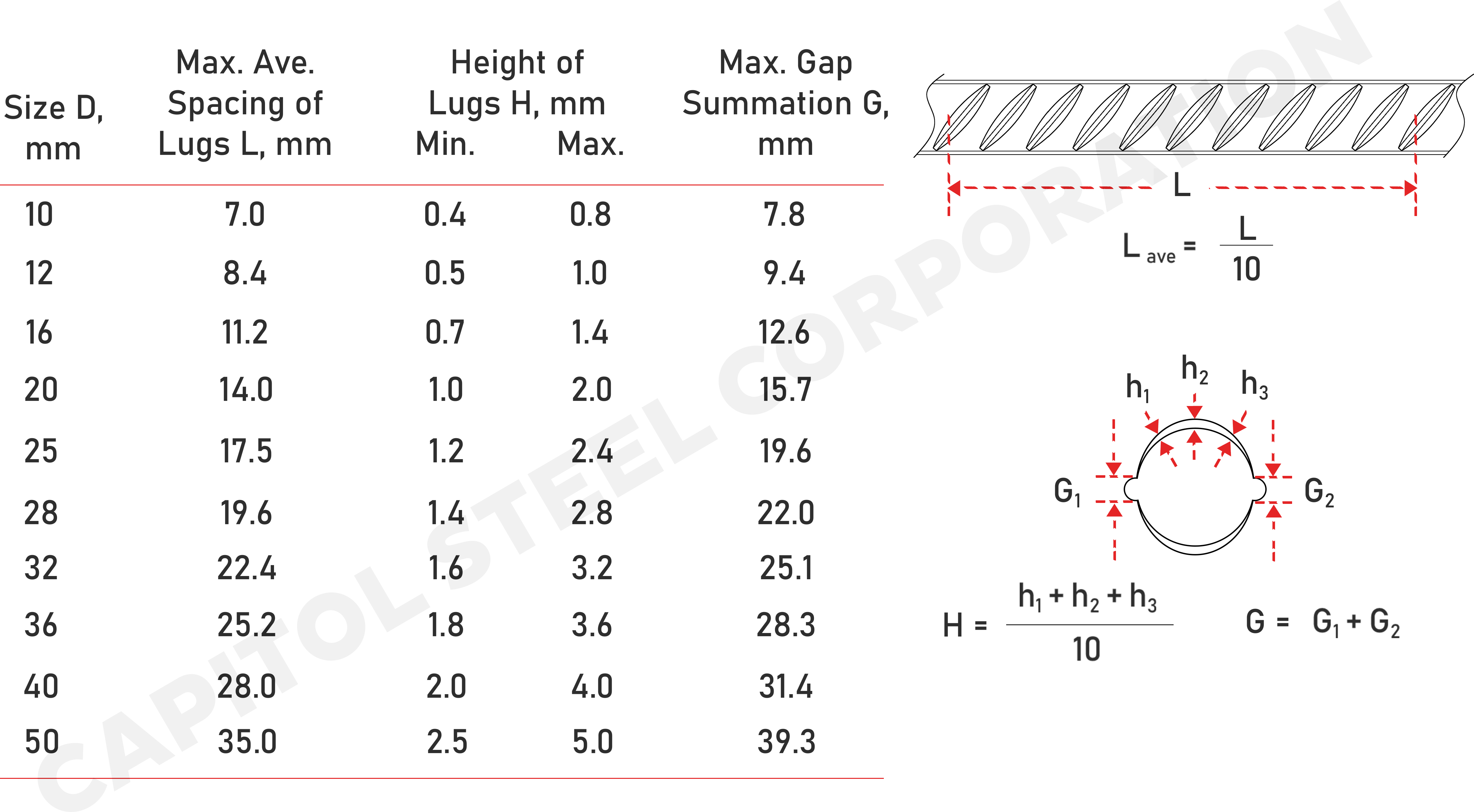
Visit our rebar price list page and request a quote from our sales.
Buy rebars from CSC!
Check out the official Bureau of Philippines Standards (BPS) to buy your own exclusive copy of PNS 49 and other Philippine standards you need.
Need your own copy of PNS 49?
Want to stay in touch with Capitol Steel?